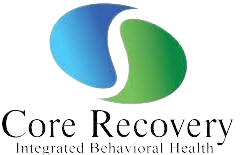Are you feeling overwhelmed by your mental health condition? You’re not alone. Many, just like you, are grappling with disorders such as depression, anxiety, trauma and more. What if we told you there is a structured path to recovery, a level of care tailored to your needs designed to aid in restoring emotional and psychological well-being? We’re referring to recovery programs for mental health — an essential lifeline for those battling mental health challenges.
Understanding Mental Health Conditions
Mental health conditions disrupt daily life, causing turmoil both internally and externally. They can initiate from anxiety and depression, leading to eating disorders and more complex psychological problems. These issues are not cosmetic – they hamper your capability to live a fulfilled and successful life.
The Importance of Recovery Programs for Mental Health
At Core Recovery, we understand that navigating your path back to normalcy is taxing. Our dedicated and compassionate team utilizes unique approaches to provide a healing journey targeted towards your recovery. Empowered by our safe and respecting environment, clients harness the strength to overcome their struggles.
Here’s a brief look at the five critical elements of our recovery programs designed to guide your journey back to wellness:
- Hope: Recognizing that recovery and a fulfilled life are achievable.
- Personal Responsibility: Understanding that you have a significant role in the process of your recovery.
- Self-Advocacy: Defending your interests and making informed decisions.
- Education: Learning about your mental health conditions and recovery strategies.
- Support: Establishing a network of supportive relationships for guidance and assistance.
Exploring recovery programs for mental health is a commendable first step towards reclaiming control. Making this choice is not about highlighting your struggles, but about emphasizing your will to recuperate, grow, and thrive. Our subsequent sections will dive deeper into these elements, the various recovery programs and their benefits, and the steps involved in the process. With the right support and resources, recovery is within reach.
The Five Key Concepts of Mental Health Recovery
Embarking on a journey towards mental health recovery can feel like navigating an unfamiliar landscape. However, there are certain key concepts that serve as guiding principles throughout this journey. These principles not only provide a framework for understanding recovery but also inspire action and hope. Here, we will explore these five fundamental concepts: hope, personal responsibility, self-advocacy, education, and support.
Hope
A crucial first step in any recovery journey is fostering a sense of hope. Hope illuminates the path to recovery, fueling the belief that improvement and wellness are attainable. This concept is rooted in the understanding that while mental health conditions can be challenging, they are not insurmountable. At Core Recovery, we firmly believe that recovery is possible for everyone, and we strive to instill this sense of hope in all our clients.
Personal Responsibility
Taking personal responsibility for your recovery is about actively engaging in the process of healing. It involves making choices that foster wellness and committing to these choices consistently. Personal responsibility might encompass attending therapy sessions regularly, adhering to medication schedules, or engaging in self-care routines. It’s about recognizing that you hold the key to your own recovery and wellbeing.
Self-Advocacy
Self-advocacy is about speaking up for your needs and rights in your recovery journey. It involves learning to communicate effectively with your healthcare providers, asking questions, seeking clarification, and voicing any concerns or preferences you may have. It’s about ensuring that your voice is heard and your needs are met throughout your recovery journey.
Education
Education is a vital tool in recovery. It involves learning about your mental health condition, understanding your symptoms, and knowing what treatment options are available. Education empowers you to make informed decisions about your care and helps you to understand what to expect during the recovery process. At Core Recovery, we provide education through various means, such as our online resources and during therapy sessions.
Support
Support is an integral part of recovery. It comes from various sources, including professional healthcare providers, support groups, family, and friends. Having a strong support network helps you to feel understood and less alone in your journey. It also provides practical assistance, emotional comfort, and encouragement when you need it most. Supportive relationships can significantly enhance the recovery process, which is why we encourage family involvement in our Family Systems Program.
In summary, mental health recovery is a journey of hope, personal responsibility, self-advocacy, education, and support. These five key concepts provide a solid foundation that guides individuals on their path to wellness. They are the pillars that uphold the recovery process and the beacon that lights the way to a healthier, happier future.
Types of Recovery Programs for Mental Health
The path to mental health recovery is dynamic and personalized. Various recovery programs for mental health cater to diverse needs, offering flexible and comprehensive approaches to treatment. Let’s delve into the different types of recovery programs available.
Inpatient Programs
Inpatient treatment provides a structured environment that allows individuals to focus solely on their recovery. This type of treatment includes 24-hour care at a live-in facility, where full treatment services, including medical and behavioral therapy, are provided at one location .
Outpatient Programs
Outpatient programs provide flexibility for those who may not be able to take time away from their regular lives, work, or school. These programs typically involve meeting at a clinic a few times every week for a few hours at a time. At Core Recovery, we offer two main types of outpatient therapy programs—intensive outpatient and partial hospitalization. These programs offer a range of services tailored to individual needs, including group, individual, and family therapy, medication management, and creative expression and art therapy .
Intensive Outpatient Programs
Intensive Outpatient Programs (IOP) offer a more comprehensive approach to treatment without the need for an overnight stay. These programs are suitable for individuals whose level of addiction severity may require more counseling than standard outpatient programs, but do not warrant inpatient treatments. Core Recovery’s IOP includes group therapy sessions and one-on-one counseling for 9-19 hours per week.
Residential Treatment
Residential treatment is a more intensive form of care that provides 24-hour support within a residential setting. This treatment allows individuals to live in a supportive and structured environment while receiving comprehensive care.
Support Groups and Counseling Services
Support groups and counseling services play a crucial role in mental health recovery. These programs provide a safe space for individuals to share their experiences, learn from others, and receive emotional support. They can serve as a crucial supplement to clinical treatment, helping individuals navigate their recovery journey. At Core Recovery, we offer a range of counseling services, including one-on-one counseling, group therapy, and family-systems counseling.
Choosing the right recovery program is a personal decision that should be made based on individual needs, circumstances, and treatment goals. By offering a variety of recovery programs for mental health, we at Core Recovery aim to provide personalized, effective treatment for all individuals on their path to mental health recovery.
Specialized Treatment for Co-Occurring Disorders
In our journey to provide comprehensive recovery programs for mental health, understanding and addressing co-occurring disorders are crucial aspects of our approach at Core Recovery.
Understanding Co-Occurring Disorders
Co-occurring disorders, also known as dual diagnosis, refers to when an individual is dealing with both a mental health disorder and an addiction to drugs or alcohol simultaneously. This situation adds a layer of complexity to the treatment process, making it necessary to have specialized treatment approaches. A person battling depression or anxiety may also struggle with substance abuse, making it essential to treat both conditions concurrently for successful recovery.
Indeed, a significant number of individuals seeking treatment for substance abuse also have a dual diagnosis. A study by the Substance Abuse and Mental Health Services Administration (SAMHSA) found that 45% of people seeking treatment for substance abuse also have a dual diagnosis. This high prevalence underscores the need for comprehensive and integrated treatment approaches for co-occurring disorders.
The Need for Integrated Treatment Approaches
At Core Recovery, we believe in treating the whole person, not just the presenting issue. In cases of co-occurring disorders, rather than simply treating the visible problem, our mental health professionals work with patients to address the underlying disorders that may have made them vulnerable to life’s challenges.
Our integrated approach involves performing a comprehensive assessment to ensure the diagnosis is as correct as possible and does not overlook any conditions. We understand that each client is unique, therefore, the most effective path to recovery is to pursue treatment for all co-occurring disorders concurrently.
Our clinicians, who are licensed and trained to provide effective treatment solutions, approach each co-occurring disorder with a patient-centered strategy. This kind of approach not only addresses the symptoms but also the root cause of the disorders, thus increasing the chances of long-term recovery.
To sum up, treating co-occurring disorders requires a comprehensive, integrated approach that addresses all aspects of a patient’s condition. At Core Recovery, we’re dedicated to providing such personalized and effective treatment plans as part of our recovery programs for mental health. Through our specialized treatment, we aim to offer hope and healing to those battling co-occurring disorders.
Next, we will discuss the financial aspects of mental health treatment, which can often be a concern for those seeking help. We understand that cost can be a significant barrier to receiving care, and we’re here to help you navigate these challenges.
Navigating the Financial Aspects of Treatment
It’s essential to be aware of the financial aspects of mental health treatment when considering recovery programs. The cost of treatment should not be a barrier to getting the help you need. Here, we will discuss how to understand insurance coverage for mental health treatment and explore various payment options.
Understanding Insurance Coverage for Mental Health Treatment
Insurance coverage for mental health services varies significantly, depending on your insurance provider and specific plan. Coverage can range from full payment for treatment services to partial coverage or copays. It’s crucial to contact your insurance provider to understand what services are covered under your plan.
The Mental Health Parity and Addiction Equity Act (MHPAEA) requires health insurance plans to provide coverage for mental health and substance use disorders that is equal to coverage for physical health conditions. This means that limits on mental health benefits can’t be more restrictive than limits on medical and surgical benefits.
At Core Recovery, we accept most major insurance plans and can assist you in understanding your coverage. We believe that everyone deserves access to mental health care, regardless of their financial situation.
Exploring Payment Options for Recovery Programs
In addition to insurance coverage, there are also various payment options available for mental health treatment. Here are some common methods:
- Out-of-pocket payment: If insurance coverage is not an option, you can pay for services directly. This requires a significant upfront cost but allows for more flexibility in choosing providers and services.
- Payment plans: Some providers, like us at Core Recovery, offer payment plans that allow for manageable monthly payments.
- Sliding scale fees: Some providers offer sliding scale fees based on income, which can make services more affordable for individuals with lower incomes.
- Grants and scholarships: Some organizations and foundations offer grants and scholarships that can help cover the cost of mental health treatment.
We are committed to providing accessible and affordable care at Core Recovery. We encourage you to contact us to discuss your financial situation and payment options.
Understanding and navigating the financial aspects of mental health treatment can be overwhelming, but remember, you’re not alone. We’re here to guide you through this process and ensure you can access the recovery programs for mental health that you need.
The Role of Lifestyle Changes in Mental Health Recovery
Staying committed to a healthy lifestyle is a key component in the journey of mental health recovery. Physical well-being plays a significant role in maintaining and improving mental health, and adopting healthier habits can contribute to faster recovery and improved resilience against stress and anxiety. Let’s take a closer look at how nutrition, exercise, sleep hygiene, and outdoor activities can enhance your mental wellbeing.
The Impact of Exercise and Nutrition on Mental Health
Regular physical activity is a powerful tool for improving mental health. Exercise releases endorphins, often referred to as the body’s natural feel-good hormones. Aim for at least 30 minutes of moderate-intensity exercise most days of the week to boost mood and reduce symptoms of depression and anxiety.
In addition to exercise, a balanced diet is crucial for mental health. Consuming a variety of fruits, vegetables, whole grains, lean proteins, and healthy fats can support brain function and emotional stability. Some evidence suggests that certain dietary patterns, such as the Mediterranean diet, may be associated with a lower risk of anxiety and depression.
The Importance of Sleep Hygiene in Mental Health Recovery
Good sleep hygiene is another essential factor in mental health recovery. Disrupted sleep patterns can exacerbate mental health conditions, while consistent, quality sleep can enhance your mood and energy levels. Aim to establish a regular sleep routine, create a sleep-friendly environment, and practice relaxation techniques before bed to promote better sleep quality.
The Role of Outdoor Activities in Mental Health Recovery
Spending time outdoors can also have significant mental health benefits. Research shows that natural sunlight can improve mood and help regulate sleep patterns. Whether it’s a walk in the park, gardening, or just sitting outside, try to incorporate outdoor activities into your daily routine to boost your mental well-being.
At Core Recovery, we understand the importance of holistic treatment in mental health recovery. That’s why our recovery programs for mental health incorporate lifestyle changes alongside therapeutic interventions and medication management. We encourage our clients to incorporate these positive lifestyle changes into their recovery journey, and we provide the necessary support and guidance to help them along the way. Every step you take towards a healthier lifestyle is a step towards improved mental health.
The Use of Medication in Mental Health Recovery
Medication can play a pivotal role in the recovery process of those struggling with mental health conditions. It is a critical component in the comprehensive treatment approach we employ here at Core Recovery.
Understanding the Role of Medication in Treatment
Medications are often utilized as a part of a broader, individualized treatment plan that includes therapy and other supportive measures. The goal of these medications is to reduce the symptoms of mental health disorders, making it easier for individuals to participate in their recovery process. They can lessen feelings of sadness, depression, and anxiety, reduce mood swings, and manage potential medication side effects.
When managed appropriately, these evidence-based medications are crucial components in the treatment of many mental health disorders and can help prevent relapse. They are not a cure, but they can significantly improve quality of life and enhance the effectiveness of other therapies.
Exploring Common Medications for Mental Health Conditions
There are several types of medications that may be prescribed, depending on the specifics of an individual’s mental health condition. These may include antidepressants, anti-anxiety medications, stimulants, and antipsychotics.
At Core Recovery, our trained specialists can prescribe more effective medications that will better fit the overall treatment program. We ensure that any prescribed medication complements your behavioral care, and it is only after a comprehensive assessment that we determine the need for medication management in your personalized treatment plan.
The Process of Finding the Right Medication
Finding the right medication for mental health challenges is often a process of trial and error. It involves adjusting dosages and trying different medications to see what works best for you. This process can seem daunting, but it’s important to remember that our team of experts at Core Recovery is here to guide you every step of the way.
We ensure that the medications prescribed are effective by evaluating your existing prescription use. Some patients may benefit from a new medication, while others may be taking ineffective medications that should be eliminated from their medication programs. This comprehensive approach to medication management promotes the best possible outcomes.
In summary, medication, when used as part of a holistic treatment approach, can play a significant role in the recovery journey. With our expertise and dedication to individualized care, we at Core Recovery are committed to helping you manage your medications effectively. This way, you can focus on what truly matters – your journey towards improved mental health.
Conclusion
The Importance of Seeking Help for Mental Health Conditions
Life with mental health conditions can often feel like an uphill battle. The feelings of isolation or shame can be overwhelming, and they often discourage individuals from seeking help. However, recognizing the gravity of your condition and acknowledging the need for professional help is a pivotal stride towards recovery. There’s no shame in seeking help. Mental health conditions are health issues, much like physical ones, and deserve proper care and treatment.
The Role of Recovery Programs in Mental Health Treatment
Recovery programs for mental health play a crucial role in offering a structured and supportive environment for individuals battling mental health conditions. At Core Recovery, we offer a range of recovery programs, each tailored to meet the unique needs of our clients. Our programs include clinical treatment, medication management, counseling services, and creative expression art groups, among others.
These programs are designed not just to treat the symptoms, but also to equip individuals with the tools necessary for managing their conditions and setbacks. This includes developing healthy coping mechanisms, navigating relapses and rebuilding self-esteem and body image. We also place a strong emphasis on social reintegration, helping individuals build a supportive network for sustained recovery.
Encouraging Hope and Recovery for Individuals with Mental Health Conditions
We believe that recovery from mental health conditions is not just about managing symptoms, but also about continual growth, improvement, and learning. It’s about reclaiming one’s life from the clutches of mental health conditions and restoring mental well-being and overall quality of life.
At Core Recovery, we stand by the five key recovery concepts: hope, personal responsibility, self-advocacy, education, and support. We work tirelessly to provide a nurturing environment that fosters hope and encourages individuals to take responsibility for their recovery. We educate our clients about their conditions, advocate for their needs, and offer the support they need at each step of their recovery journey.
Mental health recovery is a journey, not a destination. There will be setbacks, but they don’t define your journey. With every setback, there’s an opportunity to learn, grow and come back stronger. You’re not alone in this journey, and help is available for you. We at Core Recovery are here to help and support you on your path to recovery.
For more information about our programs, explore our services page and request an appointment when you’re ready to start your recovery journey.







 In CA By O360®
In CA By O360®